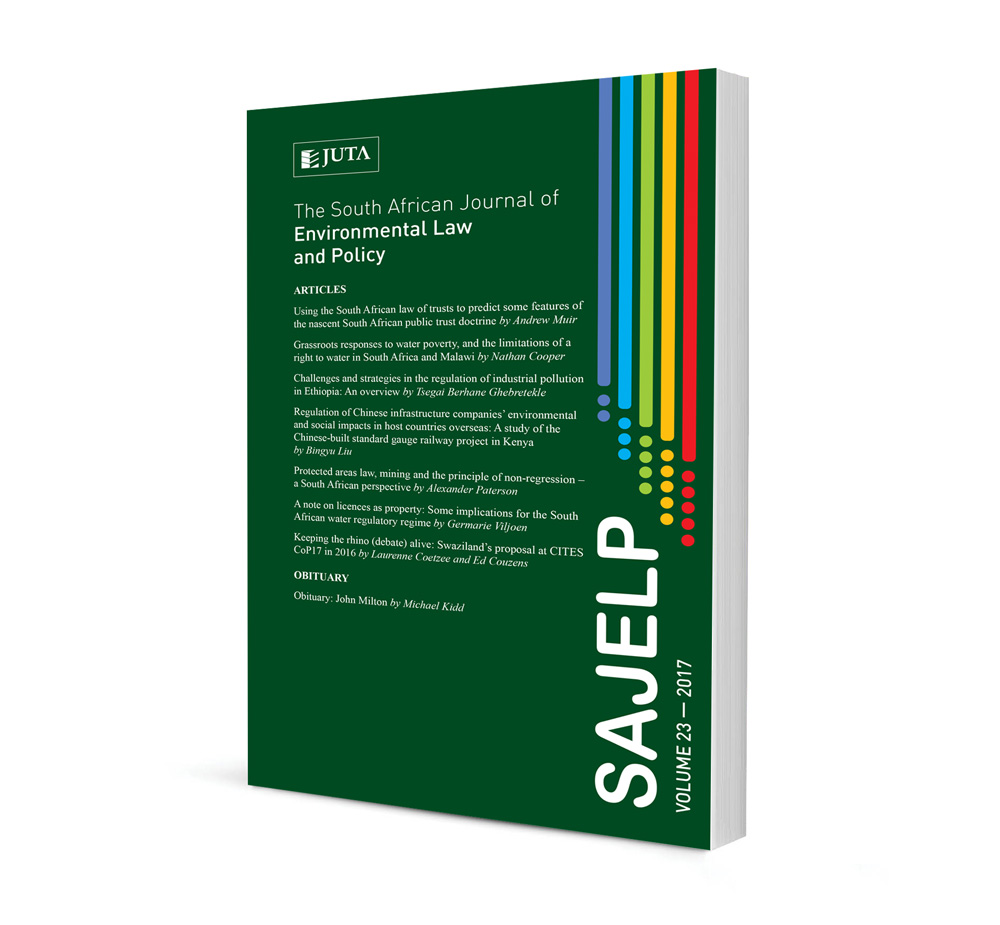
Twenty Years of The Bamako Convention: Recounting Africa’s Waste Trade Experience and Its Journey to Toxic Waste Freedom
Author Nnamdi SS Umenze
ISSN: 2616-8499
Affiliations:
Source: South African Journal of Environmental Law and Policy 2019, p. 146 – 184
Abstract
Concerned by the reckless dumping of Western toxic waste in Africa and the associated environmental, health and social problems, 12 African countries negotiated and adopted the Bamako Convention on the Ban into Africa and the Control of Transboundary Movement and Management of Hazardous Wastes within Africa (Bamako Convention), because the Basel Convention, a multilateral agreement, failed to address the concerns of the developing countries regarding the toxic waste trade. The Bamako Convention came into force in 1998 with the objectives of eradicating all forms of hazardous waste importation into Africa, minimising waste production, and regulating transboundary shipments and disposal of waste among member states, but it remains to be seen whether these objectives have been achieved after 20 years.